Charlie Munger
Critical Thinking Skills & Mental Models
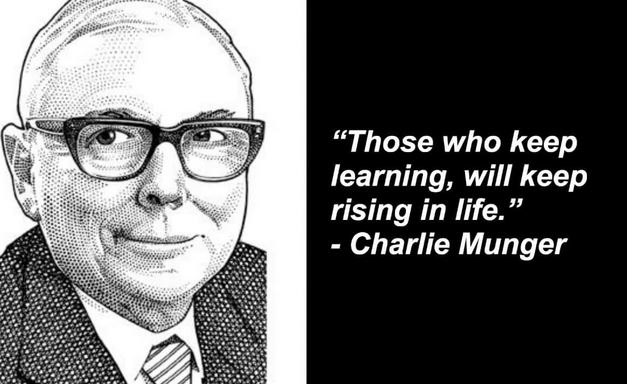
Charlie Munger, is probably best known as the Vice Chairman of Berkshire Hathaway, Inc and long term business partner of Warren Buffett.
Aside from his extremely successful business career as an investor and his various philanthropic ventures, Charlie Munger is also well known for his thinking skills and especially for his emphasis on developing multiple mental models to cut through complexity and make good judgement calls and good decisions.
He is incredibly well read and has studied many disciplines other than business such as psychology, history, biology physics and economics.
Like all of us, Charlie Munger has had his share of personal setbacks, an early divorce in era when divorce carried enormous social stigma, severe financial setbacks, the death of his son at the age of 9, cataracts when he was 52 followed by failed surgery which led to blindness in his left eye and the removal of that eye.
His insights on life in general and business in particular are extremely perceptive, and frequently correct with an uncommon consistency.
In this article we are going to be looking at some of the core principles of his thinking skills so that we can adopt them and incorporate these principles into our toolkit of thinking skills as we learn how to think more effectively.
“It is remarkable how much long-term advantage people like us have gotten by trying to be consistently not stupid, instead of trying to be very intelligent.”
Charlie Munger - Mental Models
How to think effectively? According to Charlie Munger:
“...developing the habit of mastering the multiple models which underlie reality is the best thing you can do.”
Munger is referring here to mental models.
Two broad categories of mental models that are particularly useful are those that help us understand how :
[1] The world works and thus to predict the future.
[2] Our mental processes can lead us astray via cognitive biases.
Our world is multi-dimensional and our problems are complex. Most problems cannot be solved using one model alone, thus it follows that the more models you have in the toolkit, the better equipped you will be to solve your problems because you can look at the problem from a variety of perspectives and increase the odds that you will come to a better solution.
Understand and apply: Mental Models
Understand the power of building a: Latticework of Mental Models
Charlie Munger on: How To Prioritise Learning Mental Models
Charlie Munger - The "Lollapalooza Effect"
The learning and applying of models is not enough, we also need to understand how they interact and combine, and most notably when autocatalysis or [as Charlie Munger calls it] the lollapalooza effect occurs.
The lollapalooza effect occurs when two or more forces are all operating in the same direction and often you don’t get just simple addition but rather you get a nuclear explosion once you reach a certain point of interaction between those forces such as a breakpoint or critical-mass is reached.
In the field of psychology the phenomenon wherein different biases layer and interlock with one another is the "Lollapalooza effect." It occurs when multiple different tendencies and mental models combine to act in the same direction. This makes them especially powerful drivers of behavior, and can lead to both positive and negative results.
The lollapalooza effect can cause huge negative effects but it can also cause massively positive trade-offs. So, understanding the interconnectedness of the models is critical.
Munger stated that while psychologists have been good at identifying individual biases, they are less good at figuring out how they interact and manifest in the real world, because it is difficult to run controlled experiments in that environment. At the 2017 Daily Journal annual meeting, he said:
"The psychology people couldn't do experiments that were four or five things happening at once because it got too complicated for them and they couldn't publish. So they were ignoring the most important thing in their own profession. And of course the other thing that was important was to synthesize psychology with all else. And the trouble with the psychology profession is that they don't know anything about 'all else.'"
For further reading: Lollapalooza Effect
The Lollapalooza effect: What are the mental models for success?
Latticework of Mental Models: Lollapalooza Effect
Charlie Munger - Cognitive Biases: The Psychology of Human Misjudgment
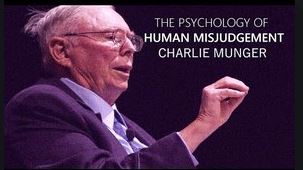
- Charlie Munger's list of: Standard Causes of Human Misjudgment
Charlie Munger - Five Simple Notions that Solve Problems
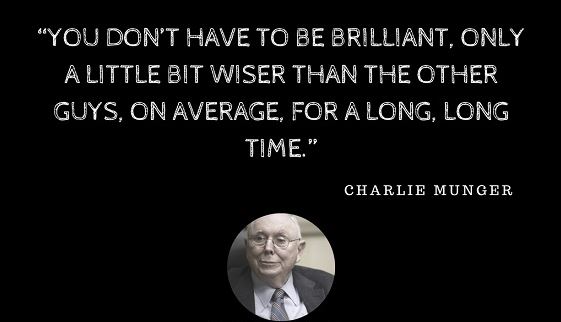
In 1996, Charlie Munger gave a talk titled "Practical Thought about Practical Thought". He started the speech by outlining five simple notions that help him quickly solve problems:
1. Simplify
"… it is usually best to simplify problems by deciding big 'no-brainer' questions first..."
2. Numerical Fluency
"Without numerical fluency, in the part of life most of us inhabit, you are like a one-legged man in an ass-kicking contest."
3. Invert
"Inverting the problem won’t always solve it, but it will help you avoid trouble. Call it the avoiding stupidity filter.
… it is not enough to think problems through forward. You must also think in reverse..."
4. Study The Basics
You need to understand the big nuggets of wisdom in the three buckets of useful knowledge.
Munger believes in using these regularly and in combination:
"You
must think in a multidisciplinary manner...You must routinely use all
the easy-to-learn concepts from the freshman course in every basic
subject. Where elementary ideas will serve, your problem solving must
not be limited, as academia and many business bureaucracies are limited,
by extreme balkanization into disciplines and subdisciplines, with
strong taboos against any venture outside assigned territory..."
5. Lollapalooza Effects
And you need to watch out for when really big ideas combine.
"… really big effects, lollapalooza effects, will often come only from large combinations of factors..."
The Charlie Munger Two Step Process To Making Decisions
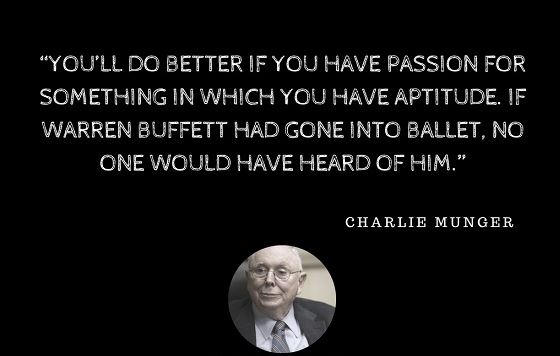
1. The Forces at Play
The key to the first step is: knowing what you know and what you don’t know.
To paraphrase Donald Rumsfelt: There are the "known knowns", the "known unknowns" and then there are far more troubling "unknown unknowns".
Charlie Munger says:
"You need to understand your circle of competence.
If you know what you don’t know, you might still have to make a decision, but your approaches for making that decision will change.
For example, if you’re forced to make a decision in an area that you know is well outside your circle of competence, one tool you can use is inversion.
While there are millions of factors that go into decisions, there will always be a few variables and factors that will carry the bulk of the weight.
To make consistently good decisions, you need to develop a deep fluency in the area in which you are making decisions, and you need to pull in the big ideas from multiple disciplines to make sure you’re exercising good judgment."
2. The Psychological Factors
There are many causes of human misjudgment, most of these are unconscious to us. Please see "Standard Causes of Human Misjudgment" above.
Further reading: The Munger Two Step Process
This mini-documentary tells the story of Charlie Munger's life and how he went through the great depression, made millions in real estate, and how he helped Warren Buffett build Berkshire Hathaway.
"So there’s an iron rule that just as you want to start getting worldly wisdom by asking why, why, why; in communicating with other people about everything, you want to include why, why, why. Even if it’s obvious, it’s wise to stick in the why."
Return from "Charlie Munger" to: How To Think
LATEST ARTICLES
Dealing With Distraction - Learning How To Live With Your "Attention Autopilot"
 Living With Your Attention Autopilot The good news about your Attention Autopilot is that it will keep you safe. It is continuously scanning your immediate environment for threats. The bad news is tha…
Living With Your Attention Autopilot The good news about your Attention Autopilot is that it will keep you safe. It is continuously scanning your immediate environment for threats. The bad news is tha…The Time Of Your Life - Recognising Moments Of Alignment For Action
 How will you recognise your moment of alignment for action? In this article I want to look at our relationship with time and in the context of the two main themes of this site, firstly as a thinking s…
How will you recognise your moment of alignment for action? In this article I want to look at our relationship with time and in the context of the two main themes of this site, firstly as a thinking s…The Metagame Approach to Second Order Thinking - 5 Guiding Principles
 How To Position Yourself For Survival & Success In A Complex Environment We treat life as though it is a complicated system, and our thinking skills and mental models are focused on understanding its…
How To Position Yourself For Survival & Success In A Complex Environment We treat life as though it is a complicated system, and our thinking skills and mental models are focused on understanding its…Outcome Over Optics - Long Game Outcomes Over Short-Term Ego Gains
 The Day I Learned To Focus On Outcome Over Optics I have never forgotten the day I learned to focus on outcomes over optics and figured out a very simple way of saving myself several hundred thousand…
The Day I Learned To Focus On Outcome Over Optics I have never forgotten the day I learned to focus on outcomes over optics and figured out a very simple way of saving myself several hundred thousand…The ETTO Principle - Why Near Enough Can Be Good Enough
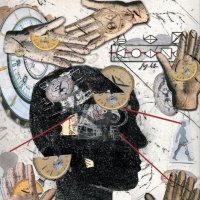 How To Balance the Efficiency-Thoroughness Trade Off The ETTO Principle describes the inherent trade-off between working efficiently and working thoroughly. This trade-off is something that affects…
How To Balance the Efficiency-Thoroughness Trade Off The ETTO Principle describes the inherent trade-off between working efficiently and working thoroughly. This trade-off is something that affects…Master The Art Of Drawing The Bow
 Focus On Process Not Outcome In so many areas of our lives, we focus on the outcome, not the process that we follow to achieve it. In the western world, we are conditioned to pay less attention to how…
Focus On Process Not Outcome In so many areas of our lives, we focus on the outcome, not the process that we follow to achieve it. In the western world, we are conditioned to pay less attention to how…And So This Is Christmas
 There Is No Path To Peace - The Path Is Peace Thich Nhat Hanh, the renowned Vietnamese Zen Buddhist monk, teacher, and peace activist, often spoke about peace as a state of being that begins within on…
There Is No Path To Peace - The Path Is Peace Thich Nhat Hanh, the renowned Vietnamese Zen Buddhist monk, teacher, and peace activist, often spoke about peace as a state of being that begins within on…Curiosity Skilled The Cat - Optimize For Interesting
 Curiosity Fuels Excellence The old adage, “Curiosity killed the cat,” warns of the dangers of venturing too far into the unknown. But what if we reimagine it not as a risk but as a gateway to developi…
Curiosity Fuels Excellence The old adage, “Curiosity killed the cat,” warns of the dangers of venturing too far into the unknown. But what if we reimagine it not as a risk but as a gateway to developi…Let Stillness Speak - Living Within A Complex System
 To let stlllness speak is to learn it's first major lesson: you are not your thoughts. To let stillness speak is about stepping back from the constant chatter of your mind and allowing a deeper, quiet…
To let stlllness speak is to learn it's first major lesson: you are not your thoughts. To let stillness speak is about stepping back from the constant chatter of your mind and allowing a deeper, quiet…Understanding Complex Systems Thinking - It's Not Complicated
 Understanding, and being able to work with, complexity is an important thinking skill.
We are all working with complex systems, and we do so every day. The biggest one is life itself. We automaticall…
Understanding, and being able to work with, complexity is an important thinking skill.
We are all working with complex systems, and we do so every day. The biggest one is life itself. We automaticall…Stay On The Bus - When To Keep On Going
 The Helsinki Bus Station Theory
Have you ever started a new project, initiative or role with a big vision and a determination to make a difference? Initially you were full of enthusiasm and highly mo…
The Helsinki Bus Station Theory
Have you ever started a new project, initiative or role with a big vision and a determination to make a difference? Initially you were full of enthusiasm and highly mo…Zen Thoughts Email Series
 Conversations With A Friend Zen Thoughts is an email series of 50 short messages spread over 3 months. The messages are written in the style of a conversation with a friend who is going through a toug…
Conversations With A Friend Zen Thoughts is an email series of 50 short messages spread over 3 months. The messages are written in the style of a conversation with a friend who is going through a toug…How to Get What You Value by Changing What You Measure
 Give Up Control & Gain Influence To Get What You Want
The metrics we choose to focus on can significantly shape our outcomes, sometimes in ways we don't intend. The challenge is to make sure that you…
Give Up Control & Gain Influence To Get What You Want
The metrics we choose to focus on can significantly shape our outcomes, sometimes in ways we don't intend. The challenge is to make sure that you…How to Become A Master At Overcoming Hard Moments
 "The best in the world are not the best because they win every point. It's because they lose again and again and have learned how to deal with it." This quote from Roger Federer has got a lot of cover…
"The best in the world are not the best because they win every point. It's because they lose again and again and have learned how to deal with it." This quote from Roger Federer has got a lot of cover…Drop The Story - Deal With Your Demons and Transform Your Experience
 Are you living your life from the stories you tell yourself? Learning how to drop the story and deal with that voice in your head can be a game changer. When you can do this you will have a powerful t…
Are you living your life from the stories you tell yourself? Learning how to drop the story and deal with that voice in your head can be a game changer. When you can do this you will have a powerful t…